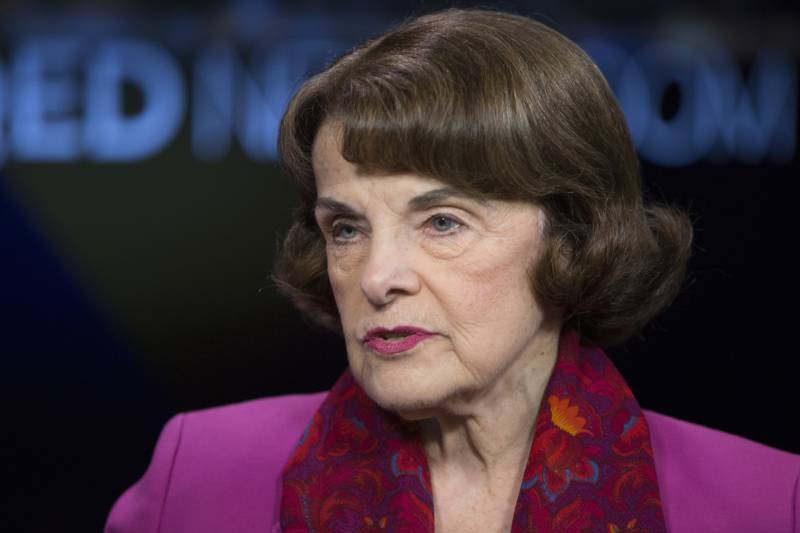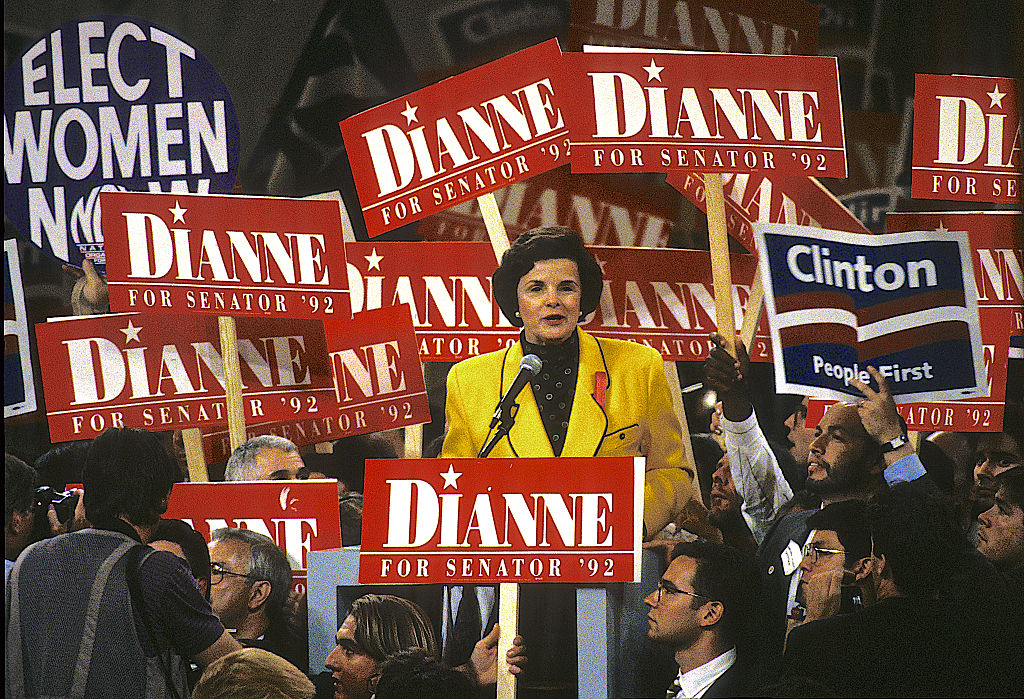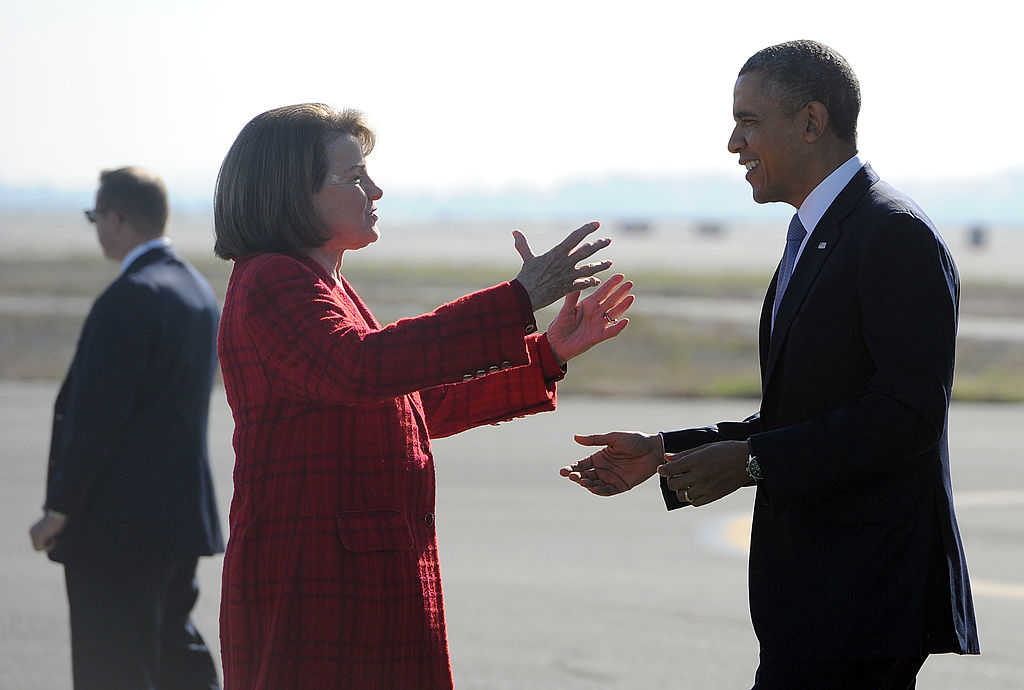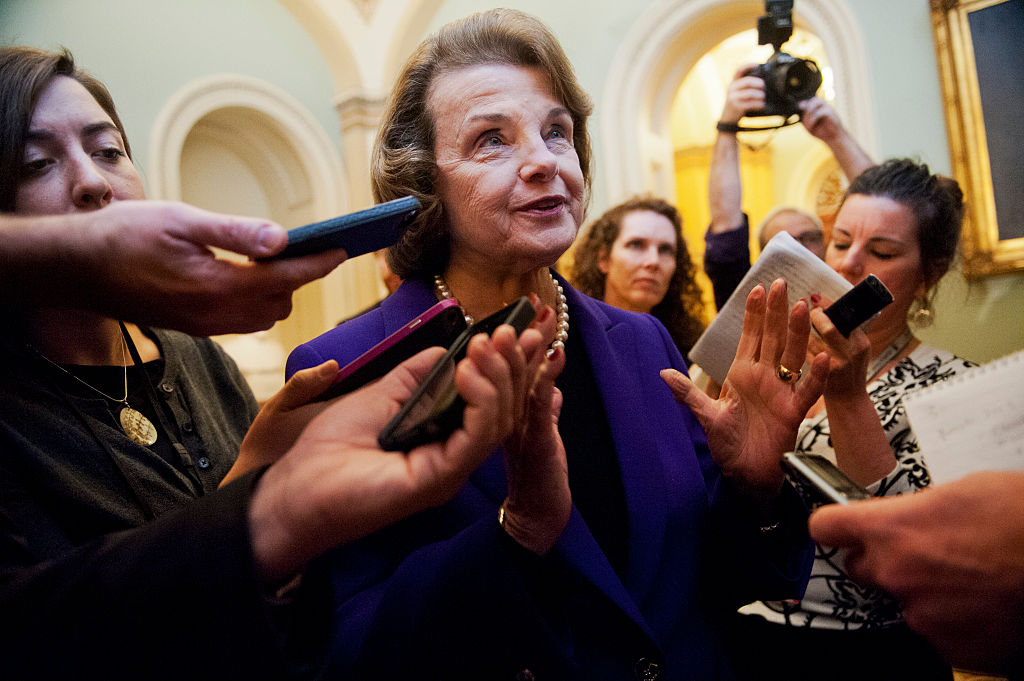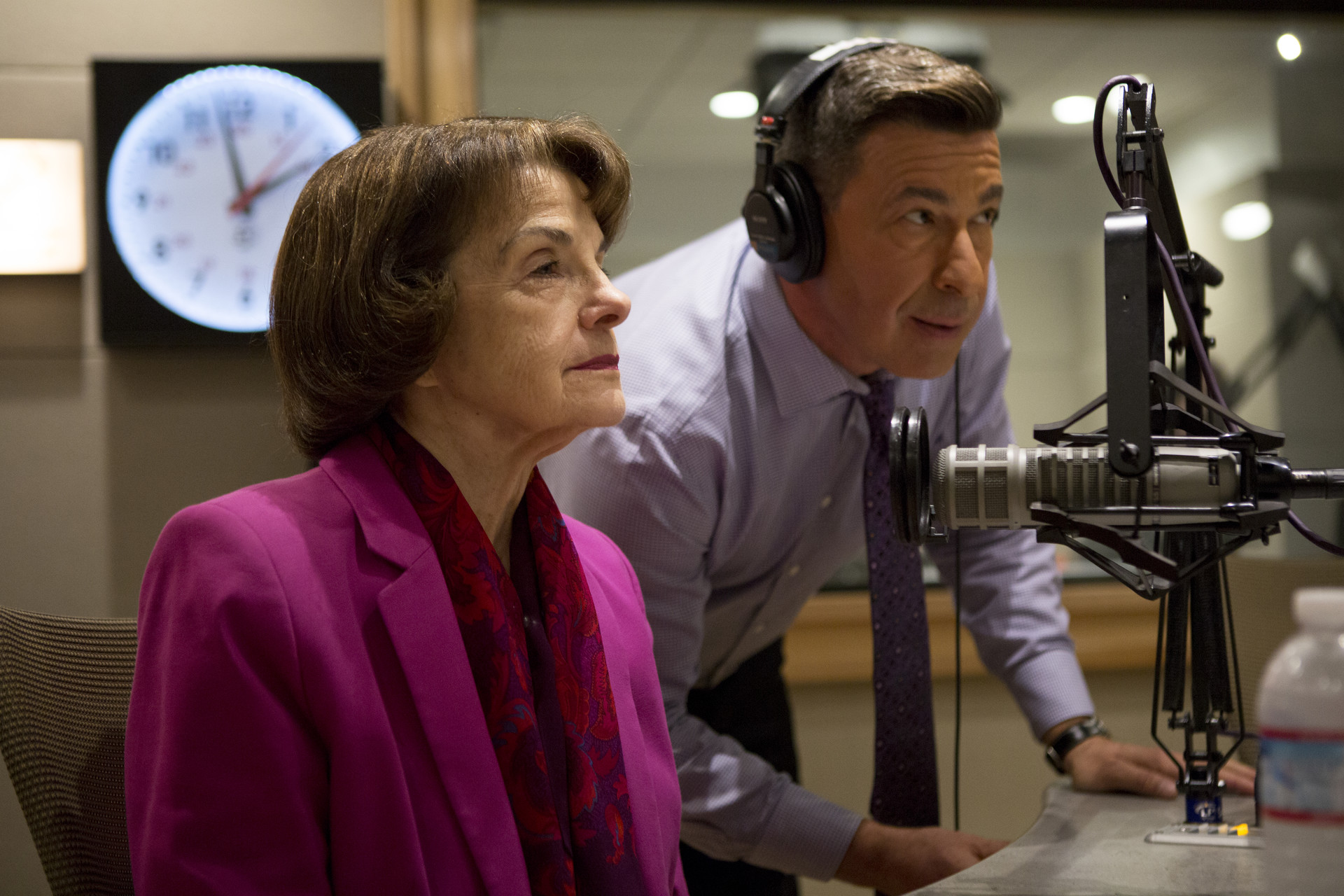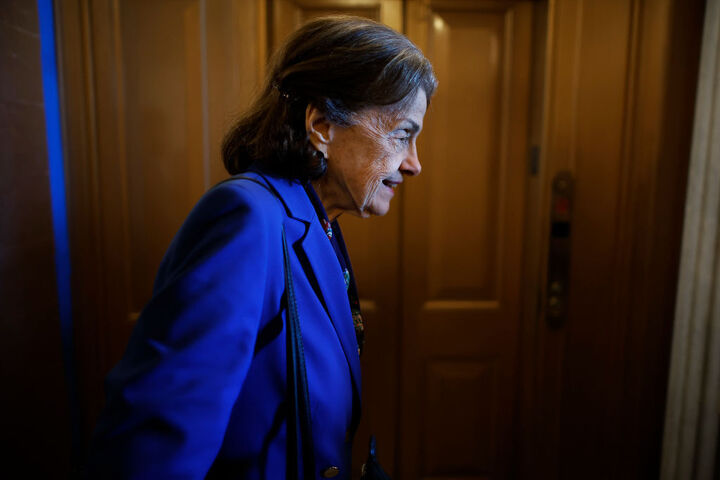Follow live ongoing coverage: Senator Dianne Feinstein dies at 90: Live Updates
Dianne Feinstein, a champion of gun control who broke glass ceilings for women in local, state and national politics, died Thursday night, KQED has confirmed. She was 90 years old.
“Sadly, Senator Feinstein passed away last night at her home in Washington, D.C.,” Feinstein’s chief of staff James Sauls wrote in a statement Friday. “Her passing is a great loss for so many, from those who loved and cared for her to the people of California that she dedicated her life to serving.”
Feinstein was elected to the U.S. Senate from California in 1992 on a wave of support for female candidates nationwide known as the “Year of the Woman” and went on to become the longest serving U.S. Senator in California history. But her rise in politics began in 1978 when the city was jolted by two assassinations at City Hall. As president of the San Francisco Board of Supervisors, it was left to Feinstein to announce the stunning news.
Standing before a crowd of reporters outside the mayor’s office in San Francisco City Hall on November 27, 1978 — long before news traveled around the world instantaneously — Feinstein’s announcement was delivered with both anguish and self-control, an image that would define her political reputation as a strong leader.
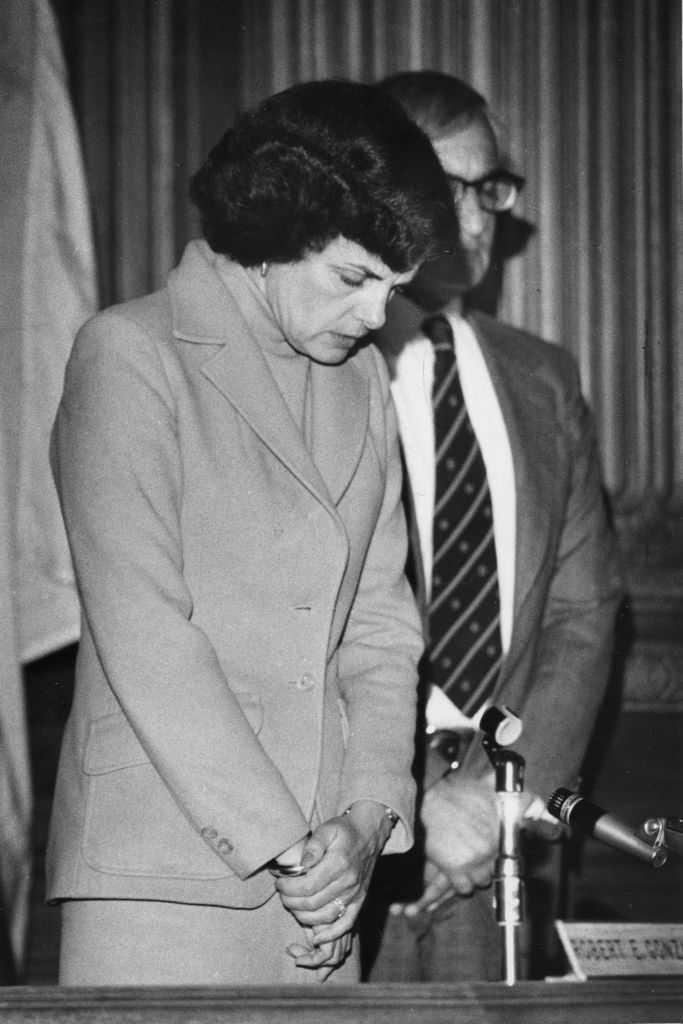
“Both Mayor Moscone and Supervisor Milk have been shot and killed,” she said as cries of shock and dismay rang out. “The suspect is Supervisor Dan White.”
Minutes earlier, Feinstein found Milk’s body down the hall from her office. It was a day seared into her memory. “I remember leaning over his body. … this is San Francisco, how can this be? How can this be? But it was,” Feinstein recounted to KQED in 2018.
Upon Mayor George Moscone’s death, Feinstein became mayor — a job she held for nearly a decade, first as acting mayor before being elected twice to full four-year terms. Former San Francisco Mayor Willie Brown — a longtime political ally of hers — said Feinstein’s handling of the assassinations crisis cemented her reputation.
“It was a dramatic demonstration of how, in the face of total and complete disaster, somebody could stand up to settle the ship,” Brown said.
“She’s really a healer,” said Bay Area Council CEO Jim Wunderman in 2023 after Feinstein announced her retirement from the Senate.
Wunderman, who worked for Feinstein at City Hall when she was mayor, said “she first and foremost sees the opportunities to be able to bring people together in very difficult situations to solve extremely challenging problems. And she doesn’t shy away from it. You know, she kind of runs at the problem rather than running away from it.”
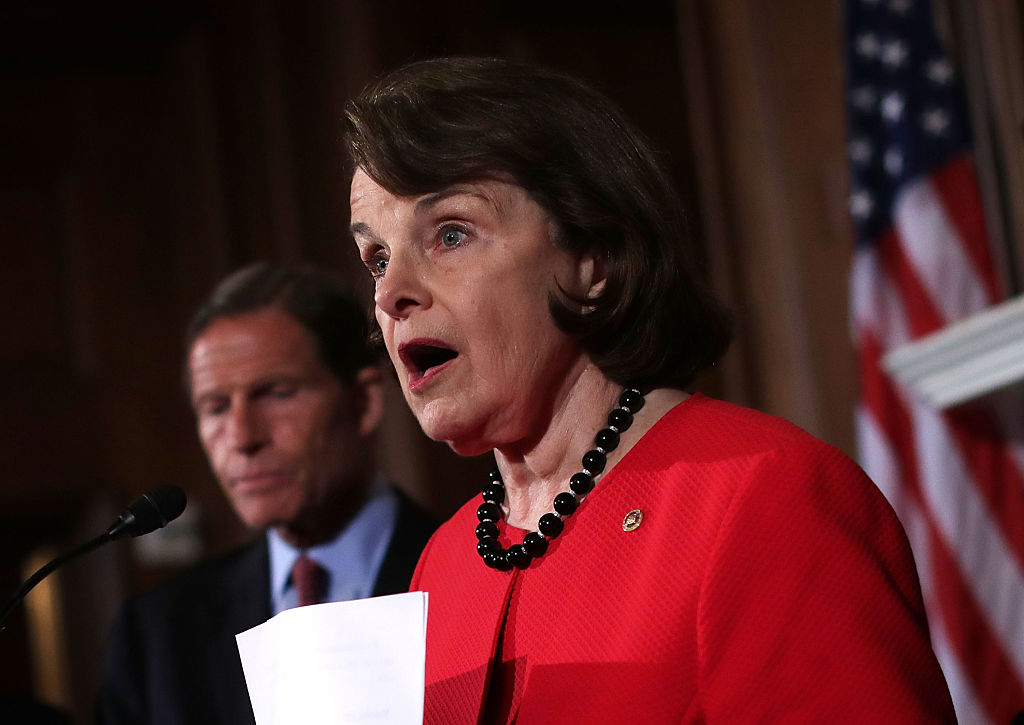
As mayor, Feinstein governed from the center — winning support from business groups, law enforcement unions and the city’s more moderate-to-conservative voters. In a 2001 interview with C-SPAN, Feinstein attributed her political philosophy to her upbringing.
“My mother was a Democrat. My father was a Goldwater Republican. So we had a split family. It made for some very interesting dinner conversations,” she said.
Dianne Goldman was born in San Francisco in 1933, the oldest of three girls. Her father Leon Goldman was a surgeon and her mother, Betty, was a Russian immigrant who worked as a model. She did not have a particularly happy childhood. Years later Feinstein recounted how her mother would fly into fits of alcohol-fueled rage.
